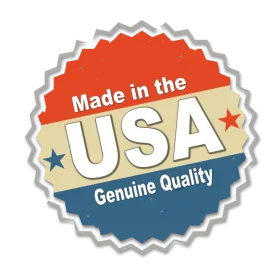Distributors selling products marked as “Made in U.S.A.” may face an increased risk of being sued in California if those products contain even minor foreign components. Two recent federal district court cases have analyzed “Made in the U.S.A.” labels under California Business and Professions Code Section 17533.7, which prohibits a “Made in USA” label if the product contains any material made outside of the U.S. The courts found that federal law on designation of origin does not preempt the strict California laws. Paz v. AG Adriano Goldschmied, Inc., No. 3:14-cv-01372, Dkt. 14 (S.D. Cal. October 27, 2014); Clark v. Citizens of Humanity, LLC et al, No. 3:14-cv-01404, Dkt. 42 (S.D. Cal. April 8, 2015).
At base, the district court concluded that federal law on “Made in U.S.A.” claims does not preempt California law and that manufacturers of clothing could comply with both sets of laws by using a “qualified” label to describe the goods as containing foreign and domestic parts, or by having a separate label for products sold in California.
In Paz and Clark, the plaintiffs alleged that they purchased the defendants’ jeans. The plaintiffs in both cases (who are represented by the same counsel) alleged that the jeans contained unqualified “Made in the U.S.A.” labels at the time of purchase. The plaintiffs also alleged in both cases that despite the “Made in the U.S.A.” labels, component parts (including fabric, thread, buttons, rivets, and zippers) were made outside of the U.S. As such, the plaintiffs claimed to have been deceived under California Business and Professions Code Section 17533.7, the California Legal Remedies Act, and the California Unfair Competition law.
In Paz, defendants argued that the Federal Trade Commission Act (FTCA), the Federal Trade Commission’s (FTC) “All or Virtually All” standard for “Made in USA” claims, the Textile Fiber Products Identification Act (TFPIA), and supporting regulations, preempted the plaintiff’s state-law claims. The defendants argued that the federal standard may permit a manufacturer, under certain circumstances, to use a “Made in the U.S.A.” label on U.S.-assembled products . incorporating foreign materials or components. Under federal law, the FTC will consider three factors in determining the propriety of a “Made in U.S.A.” label: “whether the final assembly or processing of the product took place in the U.S.; the portion of the total manufacturing cost of the product that is attributable to U.S. parts and processing; and how far removed from the finished product any foreign content is.” The defendants claimed the federal standard conflicted with California law, which prohibits a “Made in U.S.A.” label unless all articles, units, and constituent parts were “made, manufactured, or produced” in the U.S. The defendants argued that it was impossible to comply with both laws simultaneously. In denying defendants’ motion to dismiss, the court agreed that federal and California state law put forth different, conflicting standards, but found no preemption because (1) the defendants could use different labels in California than in other states, or (2) the defendants could “qualify” their labels to comply with both federal and California state law. For example, the defendants could label their jeans as “Made in the U.S.A. of imported fabric and components.”
In Clark, the court followed the reasoning of the Paz court and found that federal law did not preempt California state law because defendants, again, could use different labels in different states and could use qualified labels in compliance with both federal and California law. The court also rejected defendants’ arguments that the Dormant Commerce Clause prohibits California’s “Made in U.S.A.” laws.
Recently, in Paz, after denying the defendants’ motion to dismiss, the court also denied the defendants’ motion for interlocutory appeal of the preemption issue. The Paz court noted that while this was an issue of first impression for the court, that reason alone did not warrant interlocutory appeal and that an appeal would only “delay[ ] the progress of the case and its ultimate termination,” (Paz v. AG Adriano Goldschmied, Inc., 3:14-cv-01372, Dkt. 25).
The District Courts of California have made it known that labels that comply with the FTC standard and which may be sold in other states may not pass muster in California. In light of the recent California decisions, distributors and manufacturers who label their products as “Made in U.S.A.” and sell in California should take serious precautions to ensure that all components and parts are made in the U.S. Alternatively, manufacturers should consider qualified labels or, while in many cases not practical, separate labels for products destined for sale in California.






 />i
/>i

